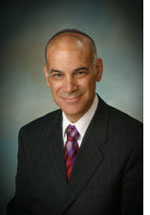By Rabbi Leonard Rosenthal

SAN DIEGO — Judaism has always encouraged diversity of opinion among its adherents. Historically, it has been those who have insisted on unanimity of belief who have ended up on the defensive.
However, the motivation of those who hold diverse opinions has always been subject to scrutiny. In putting forward differing views, are they attempting to reinforce Judaism and Klal Yisrael or tear them down?
The Talmud puts it this way: “What is an example of an argument for the sake of heaven? The disagreements of Hillel and Shammai. What is an example of an argument not for the sake of heaven? The disagreements of Korach and his followers.”
Rabbis Hillel and Shammai often disagreed. Yet, they remained friends and colleagues, and were always motivated by their desire to discern and follow God’s will.
Korach and his followers, however, challenged Moses and Aaron for wholly self-serving interests. They believed that if they could convince the Israelites of the veracity of their position, then positions of leadership would be theirs. They were not attempting to bring the people heavenward, but dividing each against his/her neighbor.
In a small shtetl near Parmishlan, Poland, an ugly dispute once arose over the local shochet (ritual slaughterer). Some villagers thought the shochet was not inspecting the lungs of slaughtered animals thoroughly enough to make sure they were free of defects and therefore kosher. Other villagers indignantly insisted that the shochet was following the law properly.
Soon the town became divided over the Kashrut of the shochet. The townspeople decided to turn to Rabbi Meir of Parmishlan to help them solve the dispute.
Rabbi Meir met with representatives from both sides of the dispute and listened carefully to their arguments and accusations. After meeting with them, he went to the village to announce his decision.
With the villagers surrounding him he quietly said: “According to all authorities, the inspection of the lungs of a slaughtered animal is a Rabbinic law. However, the law against creating and perpetuating an unreasonable argument comes from the Torah (and is therefore of higher importance).
We have already learned from Talmud : “What is a dispute for the sake of heaven? The arguments of Hillel and Shammai.” From this we learn that only the disagreements of sages who were as righteous and learned as Hillel and Shammai are Godly. Any other disputes are more like those of Korach and his followers – and this includes yours!
Was Rabbi Meir suggesting that the integrity of the shochet and his attention to the laws concerning the slaughtering of Kosher animals were not important? Certainly not. But he was suggesting that there are other ways to settle disputes than by going to battle and dividing a community.
*
Rabbi Rosenthal is spiritual leader of Tifereth Israel Synagogue in San Diego. He may be contacted via leonard.rosenthal@sdjewishworld.com. Comments intended for publication in the space below MUST be accompanied by the letter writer’s first and last name and by his/ her city and state of residence (city and country for those outside the United States.)